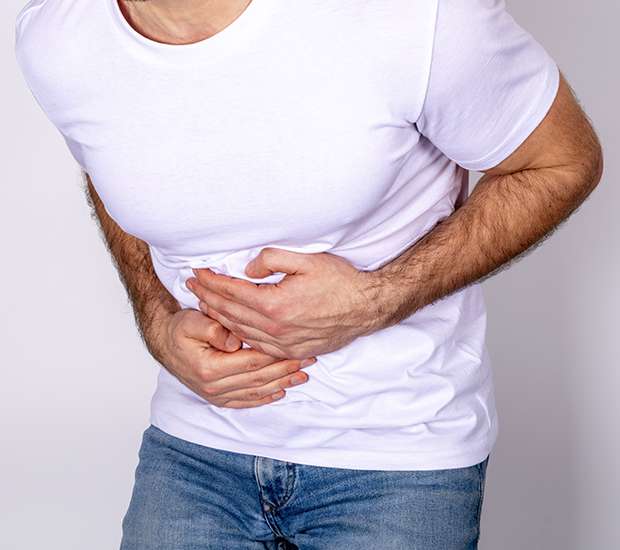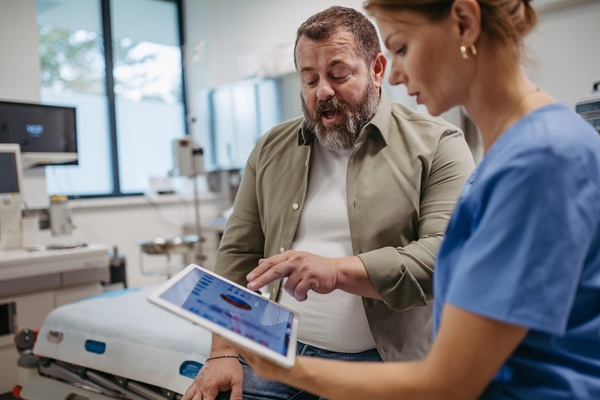Chest and Abdominal Pain: What It Means and How to Treat Frisco, TX
It can be difficult to know how severe your chest and abdominal pain is, what the cause is and how it should be treated, which is why it is important to seek medical assistance any time chest or abdominal pain becomes concerning for any reason.
In most cases, chest and abdominal pain is minor and can be treated at home with home remedies and over-the-counter medications. However, more serious chest or abdominal pain could suggest something is wrong, and it is important to seek prompt care.
While prevention is the best way to deal with chest and abdominal pain, sometimes it occurs despite precautionary efforts. Here at our urgent care facility, we are able to quickly and effectively treat any chest or abdominal pain that requires immediate medical attention, assuming the pain is not life-threatening.
If you or your child begin to show signs of severe chest and abdominal pain or experience chest or abdominal pain that lasts for an extended amount of time or is the result of a physical injury, come in for a visit to our urgent care facility for proper medical diagnosis and treatment, so you can get back to being pain free as quickly as possible.
Facts from Family Circle and Rush<
- The pain may not be coming from your heart — or even your chest.
- A variety of heart conditions can cause chest pain.
- Some heart attack sufferers don't experience chest pain at all.
- Your chest pain might be angina (like muscular pain but within the heart) and not a heart attack.
- Less than 10 percent of inguinal hernias (by far the most common type) are caused by physically strenuous activity.
- Women are twice as likely to suffer from irritable bowel syndrome.
- The older you get, the more lactose intolerant you may become.
- While it's true that certain foods aggravate ulcers, they don't cause them (in up to 95 percent of cases).
Questions to Ask Your Urgent Care Provider
- When should I do if my chest and abdomen pain does not improve after treatment starts?
- How long will it take me to recover from chest and abdomen pain?
- What is the cause of my chest and abdomen pain? Could I have avoided it?
- How can I make sure I do not develop more chest and abdomen pain in the future?
- What treatment options are available to deal with my chest and abdomen pain?
- Are there any home remedies I can try to ease my chest and abdomen pain?
- Have you treated others with a similar condition? Is my case of chest and abdomen pain normal compared to others?
- What can I do at night to help me sleep better?
- What over-the-counter medications are okay to take? What medications should I avoid?
- Is my chest pain suggestive of anything life-threatening down the road?
- Should I visit a specialist?
- What food types should I avoid due to my abdomen pain?
Causes and Associated Symptoms of Chest Pain
Chest pain can be the result of a variety of different causes, ranging from a mild case of heartburn to a heart attack. Due to the large range in severity of chest pain, it is important to have a clear understanding of what certain chest pain symptoms mean and how to treat the symptoms in an urgent manner.
The causes of chest pain can be broken into four different categories, which are a heart problem, digestive problem, lung-related issue or a muscle and bone issue. A heart-related issue, such as angina or a heart attack, are typically the most concerning, although lung-related issues, such as a pulmonary embolism, can be life-threatening as well.
With that said, any muscle and digestive issues can also be potentially problematic, and every instance of chest pain should be followed by treatment.
While in some cases, the cause of chest pain may be obvious, such as a physical injury or sore muscles, it can be complicated to know the exact cause of other forms of chest pain. In order to properly assess the cause and severity of your chest pain, it is important to know the symptoms and what they mean. Here are the most common symptoms that also occur with chest pain:
The more severe symptoms, which may suggest a serious heart condition, require urgent care and a possible call to emergency services. In the event that you begin to experience any of the following symptoms, seek immediate medical assistance:
Chest pain can be life-threatening, and it is important to seek medical attention whenever there is a serious concern for any reason.
Treatment for Chest Pain
The form of treatment used to treat your chest pain is largely dependent upon the cause. In order to determine this, our team of medical professionals will first check to ensure that you are not suffering from a heart attack, pulmonary embolism or any other form of life-threatening condition. After ruling out the most serious concerns, your physician will diagnose you based on your current symptoms, a review of your medical history and in some cases, test results, such as EKG, stress tests and a CT scan. If you believe that you are having a heart attack, visit the emergency room or call 911 instead of coming to urgent care.
Depending on the cause of the chest pain, your doctor is likely to prescribe one of the following treatment methods:
Most commonly, medication to improve blood flow is used to treat chest pain caused by a heart issue. The most common forms of heart medication for chest pain include nitroglycerin, thrombolytic drugs and blood thinners. If the doctor does not believe the pain is related to a heart issue, they may give you another form of pain relief medication to help treat the pain.
If the chest pain is caused by a panic attack or other manifestation of anxiety (e.g., PTSD), your doctor may prescribe anti-anxiety medication in order to ease the panic attack symptoms. In the most severe situations where the chest pain is caused by a serious heart or lung issue, you may need surgery.
Causes and Symptoms of Abdominal Pain
Abdominal pain is described as pain that occurs between the chest and pelvic region but can also radiate to the back side. While abdominal pain is often thought of as stomach pain, it is not always caused by a stomach-related issue.
Abdominal pain can be attributed to a variety of causes, like a food-related illness, an infection that causes nausea, vomiting and diarrhea, or a condition such as kidney stones. There are numerous reasons one may be experiencing abdominal pain. Here are various causes of abdominal pain:
Since there are numerous possible causes of abdominal pain and determining the exact cause can be difficult, it is important to visit a medical professional any time abdominal pain becomes severe. If the pain appears to be severe or worsening, it is best to visit an urgent care center or emergency room as soon as possible.
The most common symptoms of abdominal pain include:
In many instances, abdominal pain may also be accompanied by pain in several of the surrounding areas, including the chest. It is important to properly assess your pain level. If the pain is minor and has not persisted for more than a couple of hours, it may resolve or you may be able to treat it at home with over-the-counter medications. However, if at any point, the pain progress to a point where it is intolerable, be sure to seek urgent care as soon as possible.
Treatment for Abdominal Pain
The first thing your doctor is likely to do in order to properly assess and diagnose your abdominal pain is ask questions in order to understand the severity of the pain and the background of your medical history. Additionally, your doctor will conduct an examination, which includes feeling the abdominal region for tenderness and swelling. After doing so, the physician may also obtain labs or imaging, such as an X-ray or an ultrasound, to better determine the exact cause.
There are three forms of treatment that may be used. The exact treatment option depends on the severity of the abdominal pain and what caused it. The three most common treatment options include:
In some cases, your doctor may prescribe medication to treat the abdominal pain. The exact type of medication depends solely on the cause. For some abdominal pain, over-the-counter medications to relieve constipation or other common symptoms may be appropriate. If your abdominal pain is caused by a bacterial infection, your doctor is likely to prescribe antibiotics.
In some instances, a surgical procedure may be in order, such as an appendectomy or surgery for severe kidney stones.
Consult With Us
In order to ensure your chest or abdominal pain does not grow increasingly worse or last for longer than necessary, consult with us or come in for a visit to our urgent care, especially if your abdominal pain leads to an intolerable amount of pain.
At our urgent care facility, we have a quality staff of medical professionals and all the resources necessary to ensure you are treated in an efficient and effective manner, so you can get back to doing the things you love in no time. As long as the chest or abdominal pain does not require surgery and is not life-threatening, we can meet all your needs here, and you will never need an appointment.
Without proper treatment for chest or abdominal pain, you risk having the pain spread or worsen. However, receiving prompt care can ensure that the pain is managed and the other symptoms are reduced to a minimum as well.
If your chest or abdominal pain becomes a cause for concern for any reason, come into our urgent care facility and allow us to diagnose, treat and help you prevent chest and abdominal pain.
FAQ
Q. I have heard about angina. What is the difference between angina and a heart attack?
A. Angina and a heart attack are somewhat similar, as they both cause chest pain due to the heart. However, angina is a condition in which there is a reduced blood flow to the heart that sometimes occurs during exercise. A heart attack, on the other hand, results in a complete, or almost complete, blockage of blood flow to the heart. Chest pain is serious, and it may be impossible for you to be able to differentiate between these two conditions, so a trip to urgent care may be necessary.
Q. I am afraid of having a heart attack and not knowing what to do. How can I notice the signs of a heart attack, and what do I do next?
A. One notable symptom of a heart attack besides chest pain is that there may be pain in areas other than the heart. A heart attack can result in pain in between the shoulders, arms and upper abdomen region, as well as the chest area. Additionally, an individual suffering from a heart attack is likely to also experience weakness, fatigue and dizziness as well. If there is ever a concern that you or someone in close proximity to you is suffering from a heart attack, call 911 immediately.
Q. Is it okay to treat abdominal pain at home if the symptoms are not severe?
A. Yes. In fact, some abdominal pain is minor and does not require medical assistance. However, any time abdominal pain becomes intolerable, lasts for more than several days or leads to other complications, you should seek immediate medical assistance.
Definitions
- Angina
- A symptom of coronary heart disease that is caused by a reduced blood flow to the heart. It has many of the same symptoms as a heart attack, although it is less severe and can serve as a warning sign of a future heart attack if not treated.
- Appendicitis
- A condition in which the appendix becomes severely inflamed and filled with pus, causing severe abdominal pain. Appendicitis usually requires immediate surgery.
- Colonoscopy
- A procedure in which a medical professional examines the inside of the colon in order to determine any irregularities that may exist, in order to treat or prevent serious illnesses or conditions from occurring.
- Constipation
- A condition that leads to an inability to produce a bowel movement. Constipation usually causes discomfort in the abdomen region, and it can often be treated with laxatives.
- Diabetes
- A condition that affects the way the body process blood sugar, although there are different types of diabetes, with different causes and symptoms.
- Electrocardiogram
- Often referred to as an EKG or an ECG, an electrocardiogram refers to a display of an individual’s heartbeat, which is accomplished by placing devices on the chest in order to record electrical impulses of the heart.
- Heart attack
- A complete, or very close to complete, blockage of blood flow to the heart. A heart attack is a serious emergency and requires a 911 call as soon as possible.
- Irritable bowel syndrome
- An intestinal issue that shows symptoms of constipation, diarrhea and abdominal pain. Irritable bowel syndrome, or IBS, can usually be controlled with lifestyle and diet changes.
- Stomach ulcer
- A sore that develops on the lining of the stomach, caused by stomach acid. Stomach ulcers usually create a moderate to severe level of abdominal pain.
- Stress testing
- A method of testing in which a person walks on a treadmill or pedals on a stationary bike, and their heart activity is tracked and measured.




